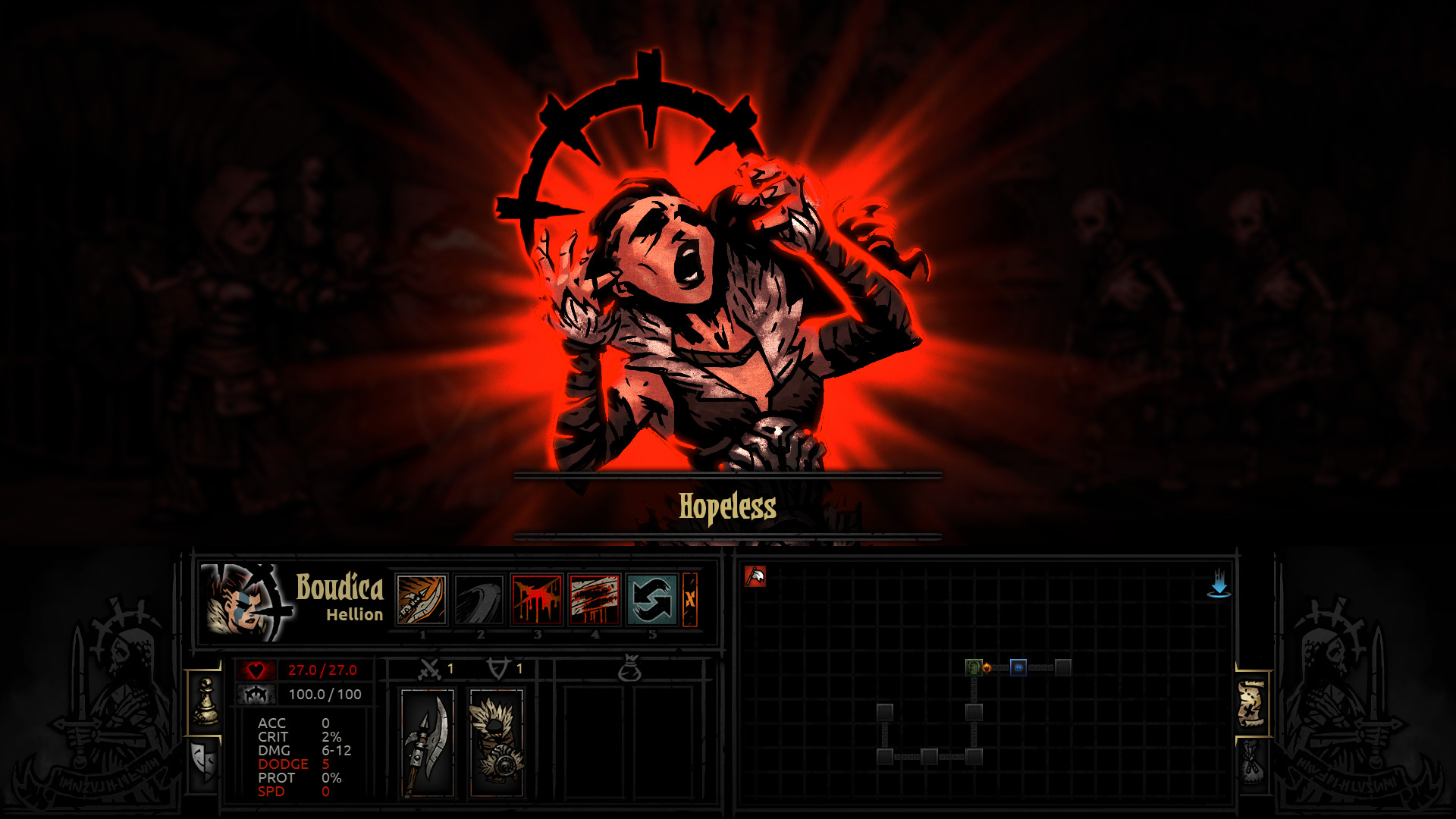
I've been playing a game recently.
It's called Darkest Dungeon , and it's also been soaking up most of my free time recently. I'd highly recommend it to anyone who enjoys their fair share of turn-based combat games.
But that's not what I'm here to talk about today; though maybe a blog post on Darkest Dungeon one day could be fun. Instead, I'm going to talk about what this game taught me about life.
There's one piece of very clever design in this game; no matter how much you upgrade and improve your character, your health never scales quite as quickly as their enemy's damage numbers. And so, you always seem to be just a little bit outpaced, even at the endgame.
A consequence of this is the fact that your characters hit 0 health real quick in this game. Not only that, critical hit chances in this game isn't just some one-off lucky hit, it's a consistent strategy you need to plan around, for both your party and the enemies you face. You walk into every encounter expecting a couple devastating hits, both ways. There's a reason this game is often called an "rng-fest" by its detractors, and they certainly have a point. You can go very quickly from devastating your enemies with crit after crit, to missing all of your 80% chance to hit attacks, to being crit for half or more of your team's health in a single blow.
In fact, player death in Darkest Dungeon is completely luck-based, as well. Once you hit 0 health, your character goes down to a state called "death's door", with each subsequent hit of damage triggering a random roll to see if the character survives, at a base of a 35% chance of dying. So after potentially dozens of hours invested into your favourite character, whether they live or die is just a little bit better than a coin flip.
Which brings us to the question: if random chance is such a large part of this game, why do you play it? Why do you have three hundred hours in a game that can feel like a coin flip at the best of times? Some people might say it's the fun of gambling, but that's not quite right. It feels good to hit 30% chance to hit attacks, or 10% chance to hit criticals, sure. But if that's all the game had to offer, those rare, high moments are certainly not balanced out by all the times your favouite character gets hit three times in a row and bleed out to death on their turn. All the times you miss an 80% chance to hit attack just to get crit for your entire health bar in return.
The reason I love Darkest Dungeon despite the fact that it's unfair bullshit. I love Darkest Dungeon because it's unfair bullshit. I love it because there are no guard rails, just the cold calculus of the number generator.
Because what is life, if not the same?
Sometimes, life feels as unfair and bullshit as those Darkest Dungeon playthroughs. Where everything seems to be in your favour, but you fail nevertheless. When you miss that 90% chance to hit, or when that 5% chance of something bad happening happens. When the world reminds you in one fell swoop that nothing in the universe is guaranteed. And that regardless, life continues. Lose one character, continue with the next. Remind yourself that overconfidence is a slow, and insidious killer, then steel yourself for what's ahead.
Because life will also throw you those rare, high moments. When things go exactly the way you want them to, and everything just seems to fall in place. And you get those 10% critical hits. That moment to moment, things feel like an rng-fest, but in reality, over the long-term, your average performance is still dependent on your skill. And that despite all the failures, you're still learning from your mistakes, and slowly, but inevitably, making progress.
I've come to respect games that teach you that kind of lesson. And Darkest Dungeon is a good teacher.